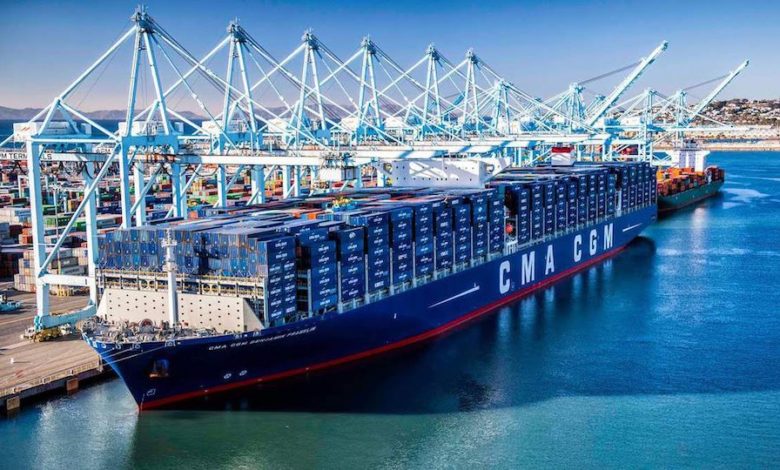CMA CGM, COSCO, Maersk, ONE sign up for transpacific green corridor

A partnership between ports, carriers, and cargo owners has published an outline of a Green Shipping Corridor Implementation Plan which will accelerate emissions reductions on one of the world’s busiest container shipping routes across the Pacific Ocean.
As part of the historic plan, the carrier partners will begin deploying reduced or zero lifecycle carbon capable ships on the corridor by 2025, and work together to demonstrate by 2030 the feasibility of deploying the world’s first zero lifecycle carbon emission container ships.
The partnership consists of the ports of Los Angeles, Long Beach, and Shanghai while carrier partners include CMA CGM, COSCO Shipping Lines, Maersk, and ONE. Core partners include the Shanghai International Port Group, the China Classification Society, and the Maritime Technology Cooperation Centre of Asia.
The plan is the first of its kind and was developed with support from C40 Cities – a global network of nearly 100 mayors of the world’s leading cities united in action to confront the climate crisis.
Participants of the Green Shipping Corridor Partnership will take steps to reduce carbon emissions and harmful pollutant emissions impacting air quality, through methods such as expanding the use of shore power and supporting the development of clean marine fuelling infrastructure.
Cargo owner partners have set goals to contract with carriers to use zero lifecycle carbon emission shipping services, and to measure progress toward decarbonisation, all partners will develop metrics to track the decarbonisation progress.
“This transpacific green corridor will be a model for the global cooperation needed to accelerate change throughout the maritime industry. This corridor will help reduce mid-ocean emissions while continuing the work we have done to cut emissions within our ports,” said Gene Seroka, executive director of the Port of Los Angeles.
“The new and innovative vessel technologies, increased availability of sustainable fuels, and better practices created through this green corridor will also impact society’s transition to a cleaner future far beyond the areas served by our ports,” said Mario Cordero, CEO of the Port of Long Beach.

Er… good!